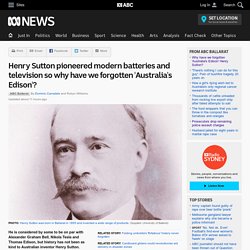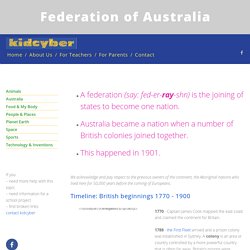

The travels of Hooky Jack - 5 (History) John Darwin Baptist was a gentleman known as Hookey Jack.

He was born in Madeira in Portugal in 1862. Don't know a lot about his early life, but the story, the story that's told is that in 1885 he inherited 30,000 pounds. So he's 23 years old and he suddenly found himself in fairly comfortable circumstances. And of course, there was a kind of immigration operating from 1849 that the world hadn't seen before and that was the gold rushes, it started with California. So the gold rushes offered ordinary people the opportunity to suddenly get rich, which was not something that many people would have the opportunity to do before.
And he becomes naturalised Australian in 1911 at the age of 49. So Hookey Jack was there in 1914, but this guy is very astute, very astute digger. He certainly saw a thylacine at Adams field. But mining certainly brought in a wide variety of people. And he got lost, got off the track, and ended up having to spend a night at the Lagoon River. Australian agricultural and rural life. Decade Timeline. Working life - from colonial times to today - History (2,5)
Mining. Transport. Wool industry. Prospectors. Pearling. Wine industry. Explorers. Gold. O'Connor Pipeline. Australian Overland Telegraph Line. New South Wales. Queensland. Victoria. Tasmania. South Australia. Western Australia. Origins, Countries, History, & Facts. British Empire, a worldwide system of dependencies—colonies, protectorates, and other territories—that over a span of some three centuries was brought under the sovereignty of the crown of Great Britain and the administration of the British government.
The policy of granting or recognizing significant degrees of self-government by dependencies, which was favoured by the far-flung nature of the empire, led to the development by the 20th century of the notion of a “British Commonwealth,” comprising largely self-governing dependencies that acknowledged an increasingly symbolic British sovereignty. The term was embodied in statute in 1931. Today the Commonwealth includes former elements of the British Empire in a free association of sovereign states. Read More on This Topic United Kingdom: Imperialism and British politics Imperialism was the key word of the 1890s, just as Home Rule had been in the critical decade of the 1880s, and the cause of empire…
The United Kingdom and Australia: Shared History, Shared Outlook. Convicts and the Colonisation of Australia, 1788-1868. Henry Sutton pioneered modern batteries and television so why have we forgotten 'Australia's Edison'? Updated about 11 hours agoMon 3 Dec 2018, 9:28pm He is considered by some to be on par with Alexander Graham Bell, Nikola Tesla and Thomas Edison, but history has not been as kind to Australian inventor Henry Sutton.

Henry Sutton's inventions 1870: Builds an ornithopter and experiments with heavier-than-air flight1876: Designs at least 20 different types of telephones1880: Designs and builds a light globe just 16 days after Edison1881: Builds a storage battery that can be recharged1883: Experiments with mineral floatation processes eventually used in water treatment1885: Invents the telephane1886: Patents improved method of printing photographs in newspapers1890: Travels to Europe to display the telephane and learn from other inventors1899: Designs and builds one of Australia's first cars1903: Co-founds the RACV1906-12: Works on developing a wireless radio system for the Government 'Australia needs to know who he is' "He was ignored because he didn't have a degree," she said.
Federation of Australia. 1770 - Captain James Cook mapped the east coast and claimed the continent for Britain. 1788 - the First Fleet arrived and a prison colony was established in Sydney.

A colony is an area or country controlled by a more powerful country that is often far away. Britain's prisons were overflowing so the decision was made to send convicts to Australia, along with soldiers and free settlers. 1860 - there were now six British colonies in Australia. The main laws of the colonies were made by the British Parliament. 1872 - telegraph linked the colonies, increasing communication between them. 1890 - The Premier of New South Wales, Henry Parkes, convinced the other premiers to discuss federation and the Australasian Federation Convention, including representatives from New Zealand, was held in Melbourne.